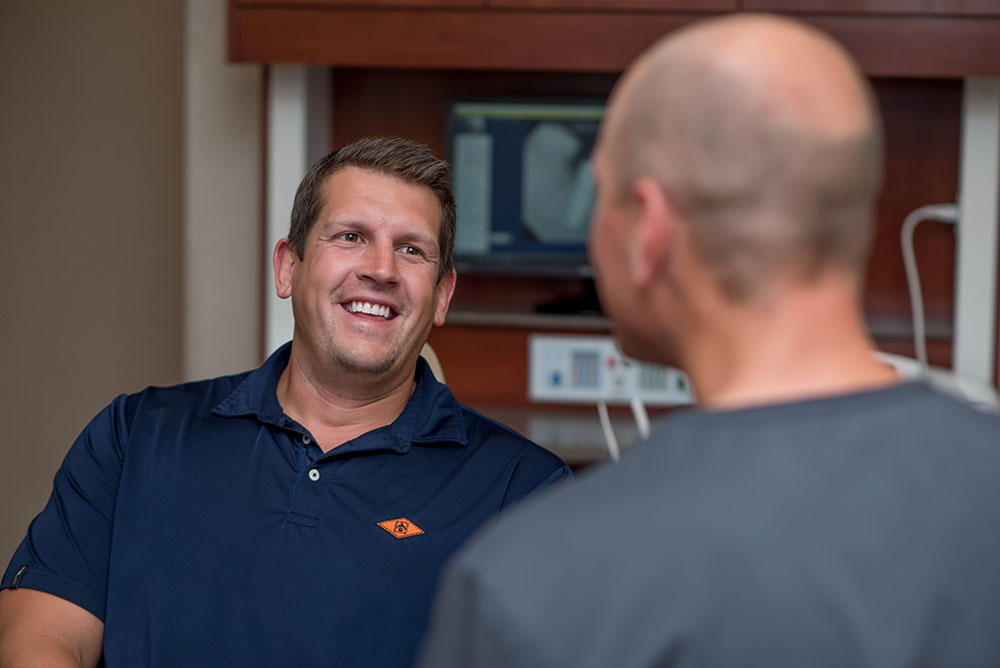Many people will have their wisdom teeth removed over the course of their lifetime.
Wisdom teeth are the third and final set of molars in the back of your mouth, usually appearing between the ages of 17 and 25.
For some, these teeth will come in correctly and pose no risk. For many others, however, the emergence of these large molars can lead to problems that require their removal.

After performing a thorough examination and X-ray of your mouth and jaw, we may recommend the removal of your wisdom teeth for several reasons, including:
- There isn’t enough space in your mouth. When you don’t have adequate space for your wisdom teeth to surface, they can crowd and damage neighboring teeth and nerves.
- Your wisdom teeth are coming through at a horizontal or otherwise awkward angle. This too can threaten your surrounding teeth. In addition, when teeth aren’t in the right position, it can make it difficult for you to brush and floss them properly. This allows food to become trapped and bacteria to grow, which can lead to cavities or promote gum disease.
- Your wisdom teeth have become impacted. Impacted wisdom teeth are trapped in your jawbone or under the gums. When wisdom teeth do not surface completely, it can cause infection, inflammation and other pain and discomfort. Impacted wisdom teeth can also give bacteria an opening to enter, creating an opportunity for infection. Sometimes, a cyst can form on or near an impacted wisdom tooth. This cyst can damage the roots of nearby teeth or destroy the supporting bone.
What You Can Expect
Wisdom tooth removal and recovery is straightforward for most patients, with the procedure typically taking 45 minutes or less. To ensure the surgery is as pain-free as possible and you have limited discomfort, we will administer a local anesthetic such as a numbing agent to the gums beforehand. Patients who require or feel more comfortable with additional sedation may receive oral medication, nitrous oxide (laughing gas) or intravenous (IV) sedation.
During the extraction process, we often need to cut into your gum or bone to fully remove the wisdom tooth or teeth. This will require a few stitches to close any wounds that may result, but these will dissolve completely within a few days.
Depending on the type of anesthesia you receive, you may need someone to drive you home after your surgery. To help with recovery, your doctor will prescribe medications to ease any pain or swelling you may experience. You’ll also receive a complete set of instructions for the days following your surgery. It is important for you to follow these instructions carefully to ensure a successful recovery and to minimize the risk of any complications.
Advanced Technology Promotes Healthy Healing
Morgan & Lemke Periodontics & Dental Implants is excited to offer platelet rich fibrin (PRF) therapy to our patients undergoing wisdom tooth removal. This innovative technology enhances recovery by using the patient’s own blood to accelerate the body’s natural healing process. When used for wisdom tooth removal, PRF therapy also reduces the risk of infection and significantly lessens the chance of a painful complication known as dry socket. PRF therapy is quick and painless, requiring just a simple blood draw, which is performed in our office on the same day as your wisdom tooth extraction.
